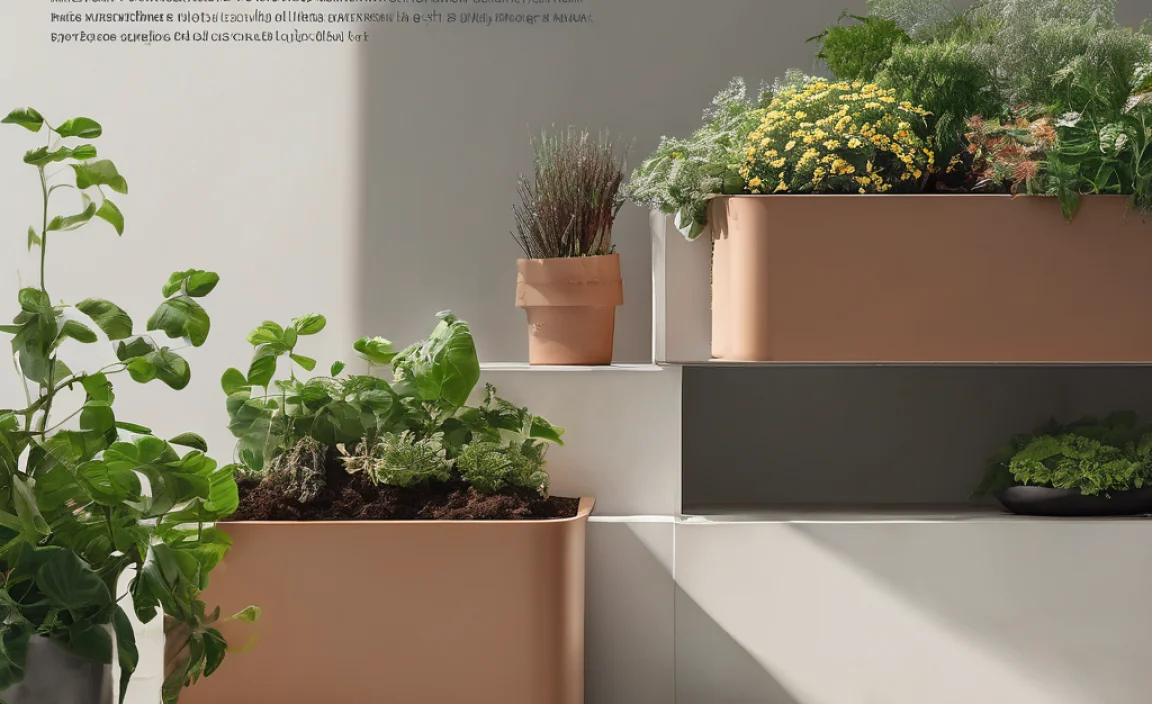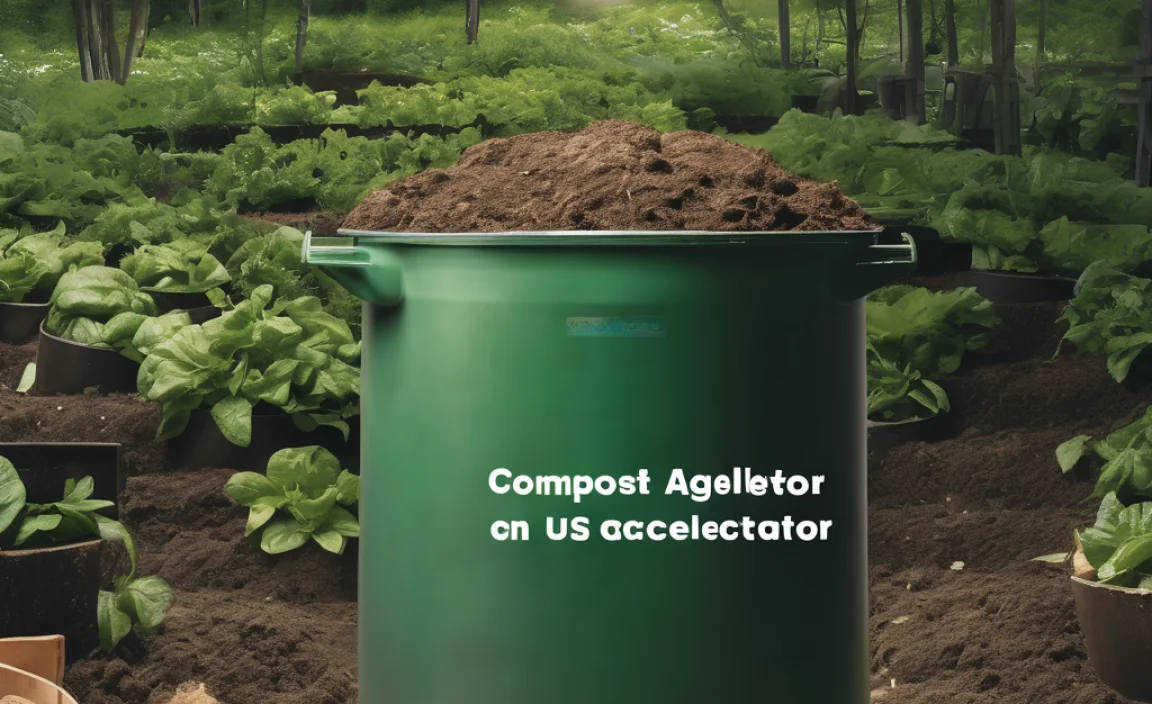Have you ever wondered what makes compost turn into rich soil? It might seem like magic, but it’s actually science. Tiny creatures called microbes work hard to break down waste. As they work, they create a warm home for the flies. Yes, flies love compost too! Together, these tiny helpers transform scraps into gardener’s gold. Let’s dive into this fascinating world of compost and meet these incredible creatures.
Key Takeaways
- Microbes and flies play vital roles in creating rich compost.
- Compost breaks down with the help of tiny organisms.
- Flies are drawn to compost due to its warmth and food.
- Maintaining balance in compost keeps microbes and flies happy.
- Learning about compost can help you grow a healthier garden.
How Compost Microbes Work
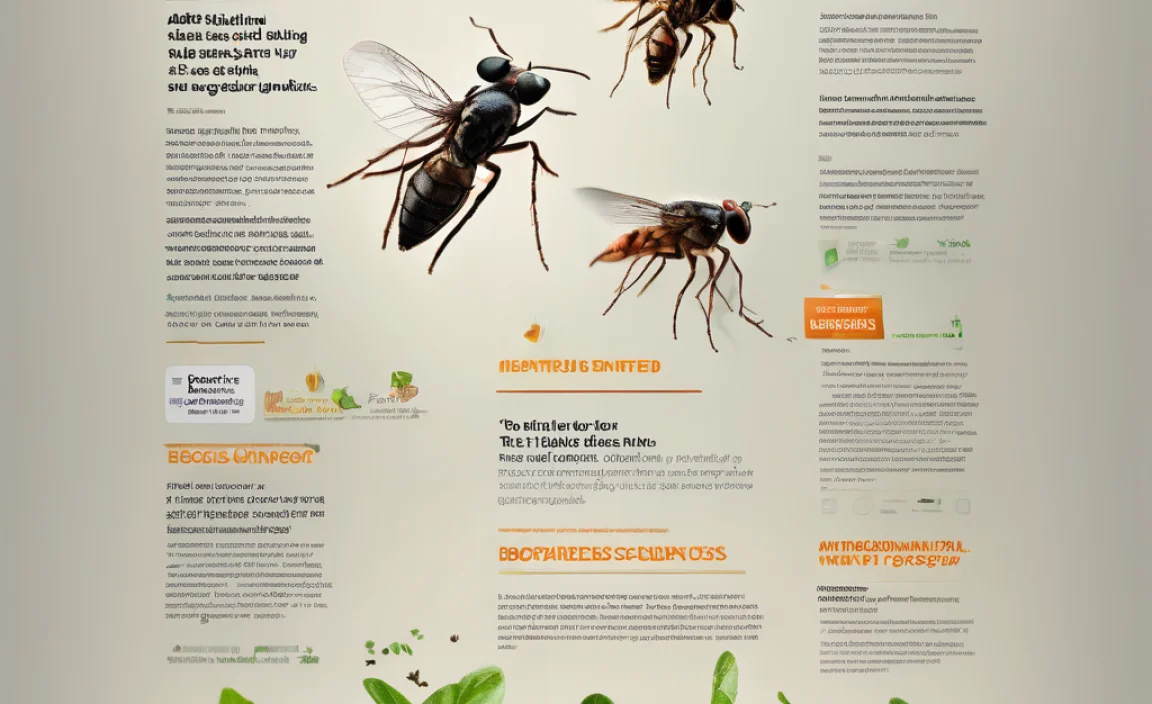
Microbes are the tiny workers in your compost bin. They break down organic waste into smaller pieces. This process creates heat, which is why compost piles are warm. Different types of microbes work at different stages. Some need oxygen to work, while others thrive in low-oxygen places. These microbes eat the waste and turn it into nutrients. These nutrients are what make your compost so good for plants.
- Bacteria are the most common compost microbes.
- Fungi help break down tough waste like twigs.
- Actinomycetes give compost its earthy smell.
- Microbes need water to survive and work.
- They grow faster in warm temperatures.
Without microbes, compost would not break down. They are the heart of the composting process. By keeping your compost pile moist and warm, you can make microbes happy. A healthy compost pile will have a nice, earthy smell. If it smells bad, something might be wrong. Check the moisture and mix the pile to fix it.
Fun Fact or Stats : One teaspoon of healthy soil has more microbes than people on Earth!
What Do Microbes Need?
Microbes need a balanced diet to do their job well. Just like us, they need food, water, and air. But what do these tiny workers eat? They eat a mix of “greens” and “browns.” Greens are things like fruit scraps and grass clippings. Browns are dry leaves and wood chips. Mixing these helps microbes stay active and happy.
Why Are Microbes Important?
Imagine if your trash never went away. That’s what would happen without microbes. They break down waste and recycle it back into soil. This process keeps our planet clean and healthy. Microbes also help release nutrients that plants need to grow. In a way, they are like nature’s own recycling team.
How Does Temperature Affect Microbes?
Temperature is crucial for microbes. They work best in warm conditions. When it gets too cold, they slow down. Too hot, and they can die. A well-maintained compost pile is like a cozy home for them. It should feel warm to the touch. If it’s too hot or cold, check your compost mix. Balancing greens and browns can help regulate temperature.
Why Flies Are Attracted to Compost
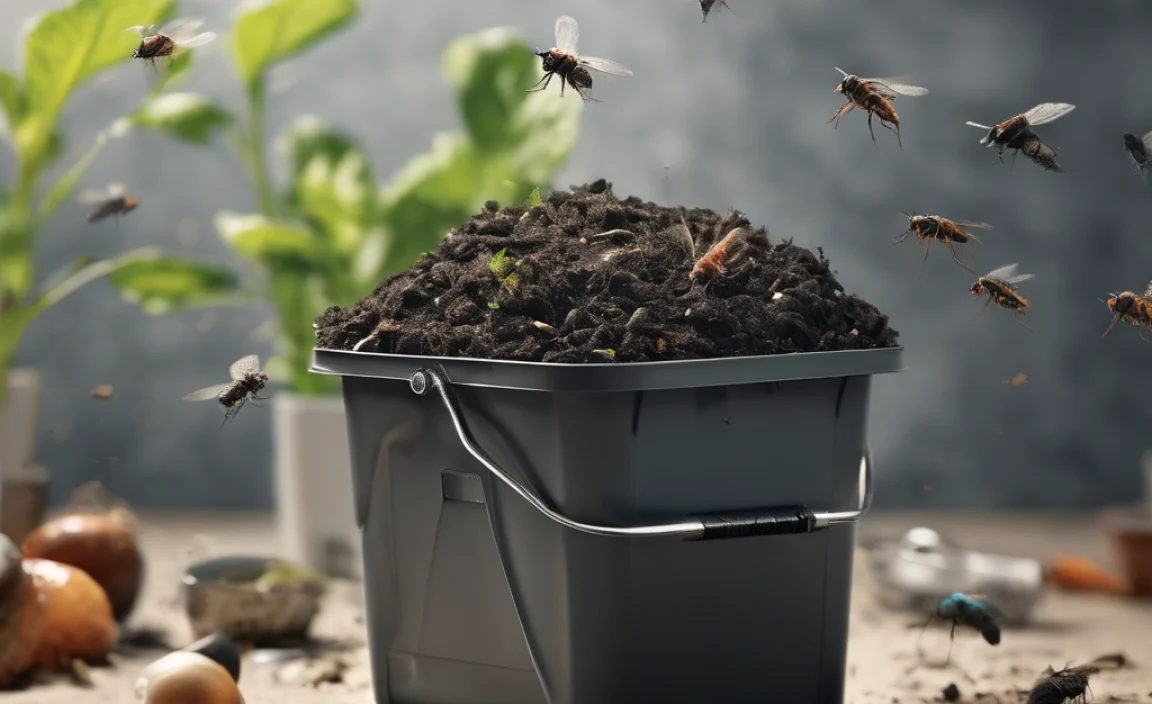
Now, let’s talk about flies. They might seem like pests, but they’re important too. Flies are attracted to compost for several reasons. First, the warmth draws them in. It’s like a sauna for flies. Second, flies find food in the compost. They love the scraps that are breaking down. Compost also provides a safe place to lay eggs. Their larvae help break down waste further.
- Flies love the warmth of compost piles.
- They are drawn to the smell of decaying food.
- Flies lay eggs in compost for their larvae to eat.
- Larvae help speed up the decomposition process.
- Fly presence can indicate a healthy compost environment.
While flies can be annoying, they actually help the process. Their larvae eat and break down waste, just like microbes. As long as the compost is balanced, flies won’t be a problem. If flies become overwhelming, it might mean something’s off. Add more “browns” to cover up smelly food scraps.
Fun Fact or Stats : A single fly can lay up to 500 eggs in its lifetime!
How Do Flies Help Compost?
Flies might be pesky, but they have a job to do. When flies lay eggs in compost, their larvae help break down the waste. This speeds up the composting process. The larvae eat decomposing materials, making it easier for microbes to finish the job. So, flies and microbes work together to create compost fast.
What Happens If There Are Too Many Flies?
Too many flies can be a sign of imbalance. It usually means the compost is too wet or has too much green waste. Adding more dry leaves or wood chips can help. Mixing the compost can also help air it out. Keeping the pile covered with soil or straw can reduce fly numbers. Balance is key for happy compost.
Why Do Flies Love Warm Places?
Flies are cold-blooded, meaning they love warmth. This is why they flock to compost piles. The heat helps them move and eat faster. It’s also why they are more active in the summer. By managing your compost well, you can keep flies under control. A balanced compost pile makes for a happy fly home- just not too many!
Best Practices for Managing Compost
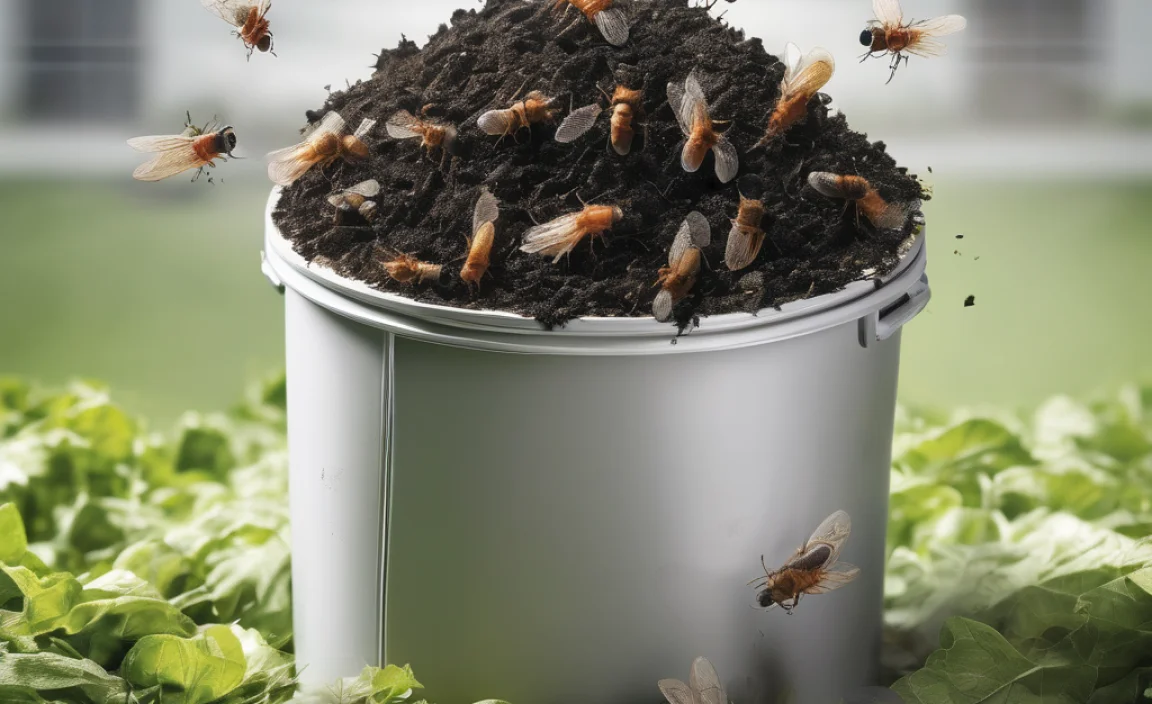
Managing compost might sound tricky, but it’s simple with practice. The key is balance. Microbes and flies both need the right environment. Start with a mix of “greens” and “browns.” Keep the compost pile moist, but not too wet. Turn the pile regularly to give it air. This keeps microbes and flies active. If you do these things, you’ll have rich compost in no time.
- Mix equal parts of greens and browns.
- Keep the compost pile moist, not soggy.
- Turn the compost pile weekly for air.
- Cover scraps with soil to reduce flies.
- Check the smell to ensure balance.
Composting is a great way to recycle and help the environment. By managing your compost pile well, you can reduce waste and grow healthy plants. Remember, it’s all about balance. With the right conditions, microbes and flies will do their work. And before you know it, you’ll have rich, dark compost for your garden.
Fun Fact or Stats : Over 30% of landfill waste is food scraps that could be composted!
How Often Should You Turn Compost?
Turning your compost pile is like stirring a pot of soup. It helps mix ingredients and adds air. Most compost piles do well with a weekly turn. This gives microbes air to breathe and work faster. It’s also a chance to check if the pile is too wet or dry. If it’s smelly, turn it more often to fix the balance.
What Are the Signs of Good Compost?
Good compost is like black gold. It should look dark and crumbly, like rich soil. It smells earthy and fresh, not rotten. If you see worms or bugs, that’s a good sign too. They help break down the material. Healthy compost is warm to the touch. These signs mean your compost is ready to use in the garden.
Why Is Moisture Important in Compost?
Moisture helps microbes do their job. Without water, they can’t move or eat. But too much water is bad too. It can drown the microbes and make the pile smelly. Aim for a consistency like a damp sponge. If it’s too dry, add water. If it’s too wet, add dry leaves. Balance is the key to healthy compost.
Common Compost Problems and Solutions
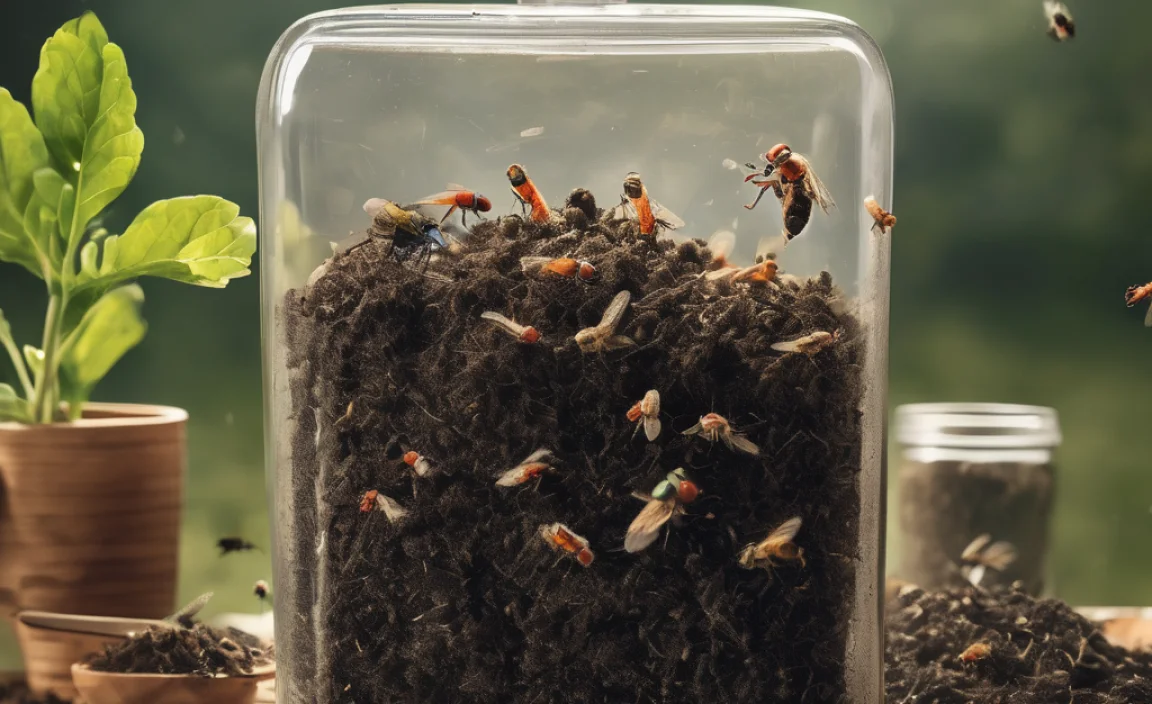
Even with the best efforts, problems can happen in composting. One common issue is bad smells. This can happen if the pile is too wet or has too much green waste. Another issue might be pests like too many flies. Overly dry compost can slow down the process. But don’t worry, most issues have easy fixes. Let’s explore how to handle them.
- Bad smells mean the pile needs more browns.
- Too many flies can be reduced by covering scraps.
- Dry compost needs water added to speed up decay.
- Piles not heating up need more green waste mixed in.
- Check for balance if compost isn’t breaking down.
Composting is a learning process. You might face problems, but each one is a chance to learn. By knowing the signs and solutions, you can keep your pile healthy. Remember, balance is key. With practice, you’ll become an expert composter in no time.
Fun Fact or Stats : Composting can reduce waste by up to 30% in landfills!
How to Fix a Smelly Compost Pile
A smelly compost pile is a common problem. It often means there’s too much green waste, like food scraps. Adding more dry leaves or straw can help. These “browns” soak up excess moisture and odors. Mixing the pile adds air, which helps too. If it still smells, check if the pile is too wet. Adjusting the balance will often fix the smell.
What to Do If Compost Is Too Dry
If your compost is too dry, microbes can’t work well. Adding water is an easy fix. Think of it like watering a garden. Add water slowly while mixing the pile. Check the moisture by squeezing a handful. It should feel like a damp sponge. If it’s still dry, add more greens. These will help boost moisture levels.
How to Handle Pests in Compost
Pests like too many flies can be annoying. They often mean the compost is too wet or has uncovered scraps. Covering the top layer with soil or straw can help. This hides the food scraps and reduces flies. Mixing the pile also helps by giving air and reducing smells. If pests persist, check the balance of greens and browns.
Table of Common Compost Microbes
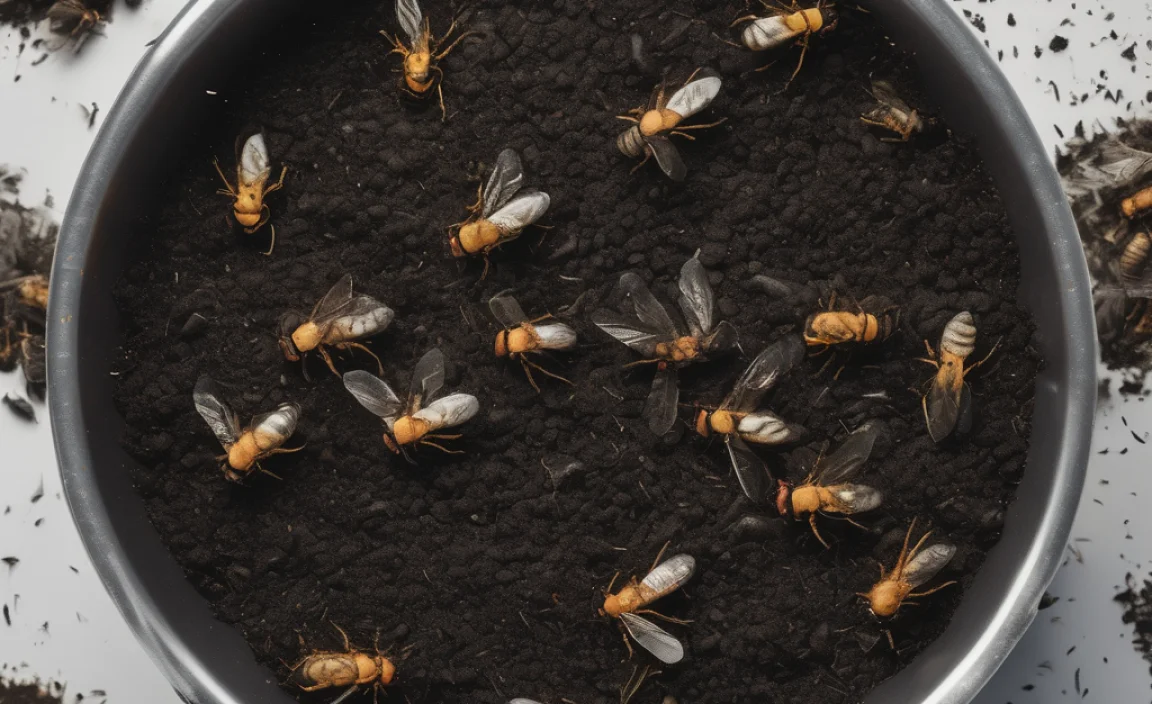
| Microbe Type | Role in Compost | Preferred Conditions |
|---|---|---|
| Bacteria | Breaks down simple compounds | Moist, warm environments |
| Fungi | Decomposes tough materials | Cool, shaded areas |
| Actinomycetes | Gives earthy smell | Rich, organic matter |
| Protozoa | Consumes bacteria | Moist, balanced compost |
Conclusion
Composting is fascinating when you think about the role of microbes and flies. These tiny creatures work together to turn waste into wonderful soil. By understanding their needs, you can create a healthy compost pile. Remember to keep the balance and monitor conditions. With patience and practice, composting becomes easy and fun. So, get started and watch your scraps turn into garden gold!
FAQs
Question: Why are flies in my compost?
Answer: Flies are attracted to compost because it’s warm and has food. They help break down waste further. Their larvae speed up decomposition. Keep the balance right to manage flies better.
Question: What do compost microbes do?
Answer: Compost microbes break down waste into smaller pieces. They recycle nutrients back into the soil. This process creates heat, helping to cook the compost. Healthy microbes are essential for effective composting.
Question: How do I keep my compost from smelling?
Answer: A smelly compost pile usually means too much green waste or moisture. Add more browns like leaves or straw. Mix the pile to add air. Check the moisture levels and adjust as needed. A balanced pile should smell earthy.
Question: What temperature is best for compost?
Answer: Compost works best when it’s warm. The ideal temperature range is between 135°F and 160°F. This range helps microbes work faster. If the pile is cool, try adding more greens or mixing it to raise the temperature.
Question: Do I need to add water to my compost?
Answer: Yes, water is essential for composting. Microbes need moisture to survive and work. Too little water, and the process slows down. Aim for a damp sponge consistency for the best results.
Question: Can too many flies be bad for compost?
Answer: Too many flies can indicate an imbalance. They can overpopulate if the pile is too wet or has too many scraps. Covering scraps and balancing moisture are key. Managing these factors will reduce excess flies.

